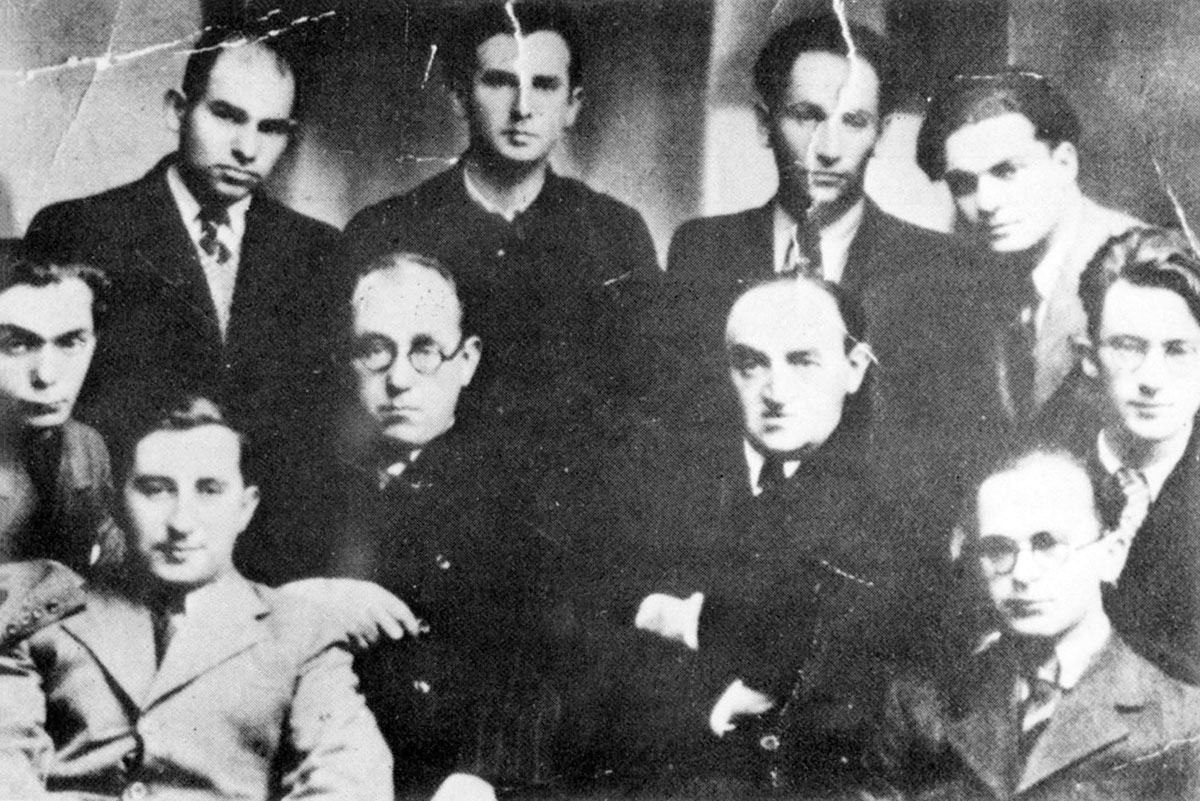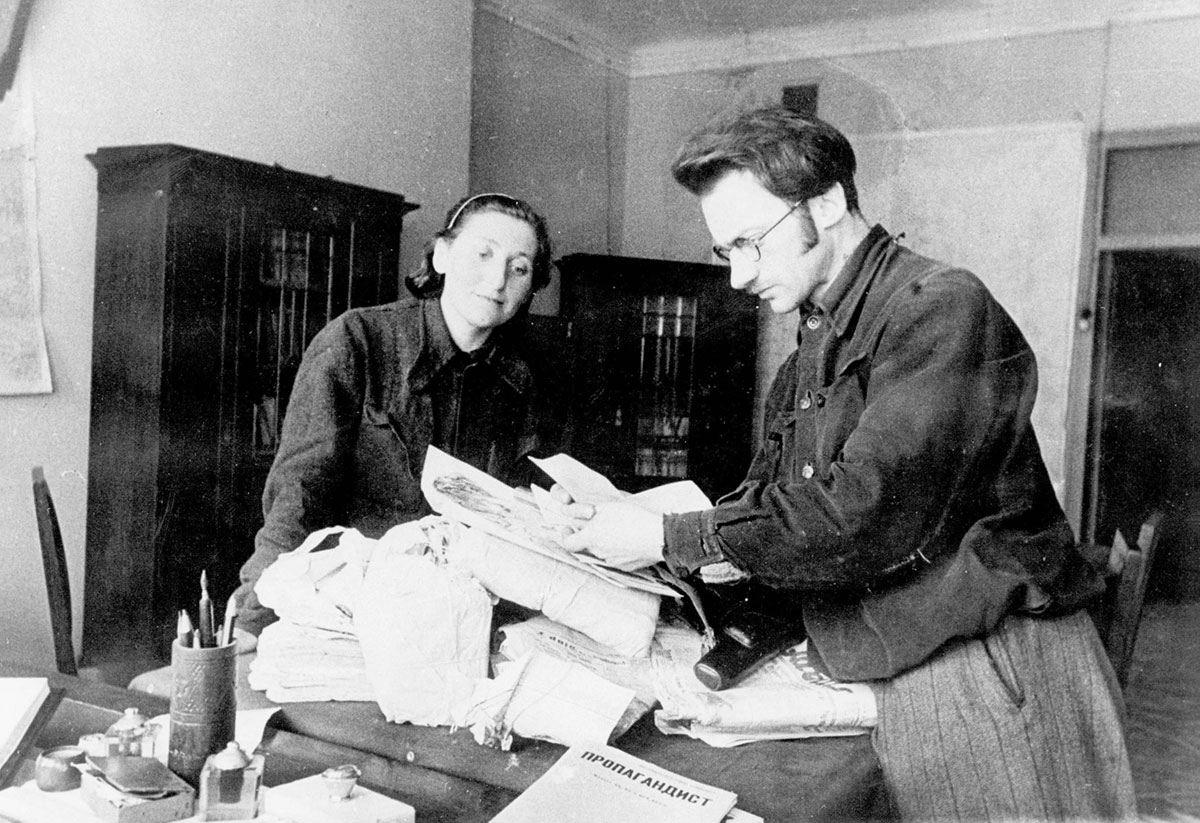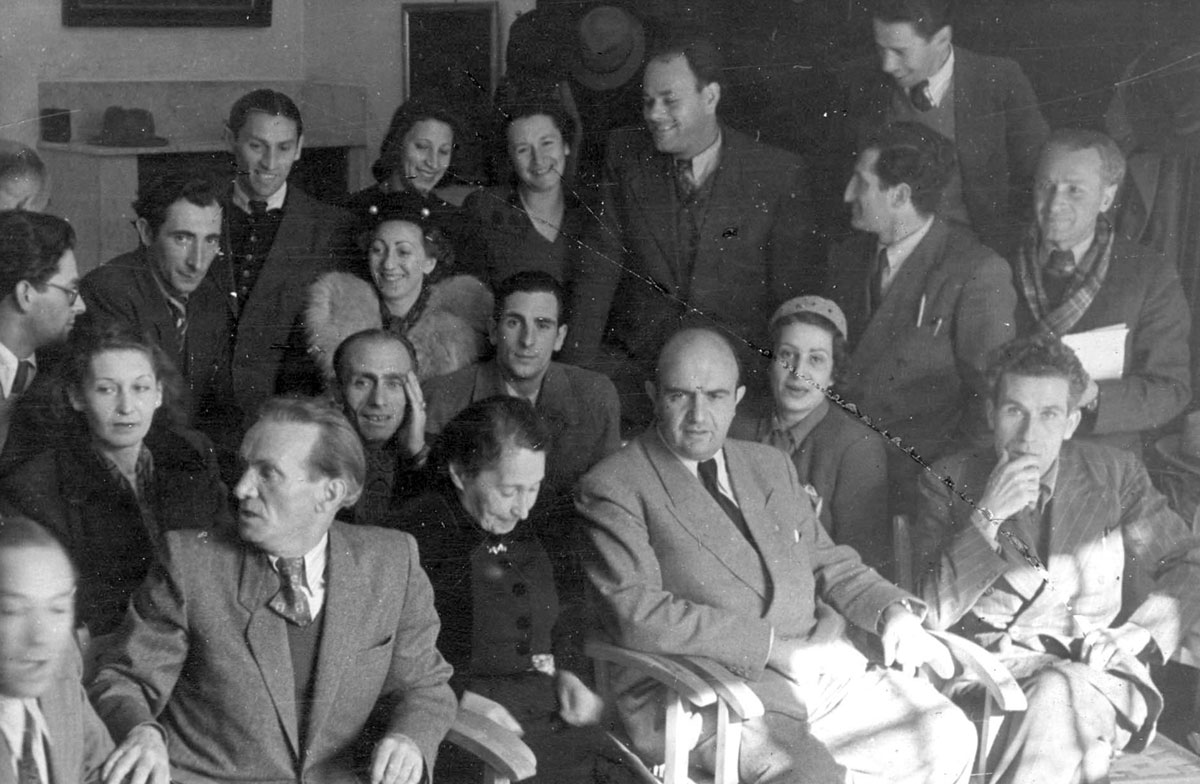The story of three important literary figures from Vilna: Chaim Grade, who documented the destroyed Jewish world in his literature; Abraham Sutzkever, whose work focuses on the Holocaust and Eretz Israel (Mandatory Palestine); and Abraham Karpinowicz, whose stories portray daily life in the Jewish community of Vilna before the Holocaust.
Chaim Grade 1910-1982
The poet and writer Chaim Grade was born in Vilna in 1910. His father was a Hebrew teacher. Grade studied at the Lithuanian Yeshivot (Talmudic colleges) in Vilna and was a private student of the “Chazon Ish” (Rabbi Avraham Yeshaya Karelitzin, portrayed in Grade’s book Tzemach Atlas) for seven years. At 22 years old, Grade abandoned his Torah studies and began to acquire a general education and to write Yiddish poetry. Grade’s works awakened immediate interest in Vilna. He joined a group of writers in the city, and was one of the leaders of the Jung Vilne (Young Vilna) literary group.
Following the German occupation of Vilna in June 1941, Grade fled alone deep into the Soviet Union, convinced that the Germans would not harm women. His wife Fruma-Liba and his mother Vellia remained in Vilna and were murdered.
After the war, Chaim immigrated to the US where he continued to write poetry and added prose to his repertoire. His works focus on Polish Jewry in general and the Jews of Vilna in particular. His books commemorate the destroyed Jewish world, and he often wrote about the tension between secular and religious Jews in Vilna, as well as the mental and spiritual angst of Jews poised on the brink of the Enlightenment, who still felt the pull of their traditional world. He dedicated one of his poetry compilations to his wife, who was murdered during the Holocaust, and wrote another anthology about his life as a refugee in the USSR.
As well as creating works of literature, Grade also sought to document ethnographically the Jewish world that was wiped out.
The US Academy for Jewish Research presented Grade with an award of distinction, acknowledging that his works are of exceptional historical value, nobly commemorating the Jewish world that was and is no more.
Grade passed away in New York in 1982.
Abraham Sutzkever 1913-2010
Abraham Sutzkever was born in 1913 in Smorgon, Russian Empire (today Belarus).
His family moved to Siberia in World War I, and in 1922, they settled in Vilna. Sutzkever attended Heder (Hebrew school) and the Gymnasium, and at 17, he joined the Yiddishist scouting movement, "Bin" (The Bee). He started writing poetry at age 14, publishing his first poem in a literary magazine in 1934.
Following the invasion by Nazi Germany, Sutzkever was incarcerated in the Vilna ghetto, where he wrote more than 80 poems that focused on everyday life in the ghetto. In 1943, he escaped to the Narocz forest and joined the partisans. During this period, he gathered testimonies about Nazi crimes, some of which he incorporated in his memoir. In March 1944, he was smuggled to Moscow by the Jewish Anti-Fascist Committee, and after the war, he testified at the Nuremberg Trials. He immigrated to Eretz Israel (Mandatory Palestine) in 1947, and continued to write poetry and prose. He founded the prestigious Yiddish literary journal Di Goldene Keyt, which was published from 1949 until the late 1990s. His poetry was translated into many languages and he was awarded several literary prizes, including the Israel Prize and the Itzik Manger Prize for outstanding contributions to Yiddish literature.
Abraham Karpinowicz 1918- 2004
Abraham Karpinowicz was born in in Vilna, Poland in 1918, and attended a Yiddish-speaking high school. His father, Moshe, was the director of the folk theater in Vilna, and was murdered in the Holocaust. When the Germans invaded in 1941, Abraham escaped to Kazakhstan, and returned to Vilna after the war. In April 1947, he went on board the Ma'apilim (illegal immigration) ship "Theodore Herzl", and was sent to a detention camp in Cyprus when the ship was intercepted by the British. He immigrated to Israel in 1949, and wrote literature and research articles in Yiddish, winning the Mendele Mocher Sefarim Prize for Yiddish Literature in 1976. In 1988, he was awarded the Prime Minister's Prize for Yiddish Literature.
Abraham Karpinowicz passed away in Tel Aviv in 2004.









